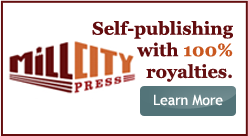How To Copyright a Book
Before learning how to copyright a book, you need to learn how not to copyright book.
The Poor Man’s Copyright
A ton of people read about this free copyright registration method. Yes, it’s free, but also ridiculous. If you read any posting online about this, ignore them. People who write how a “poor man’s copyright” is the same as actually registering your work with the U.S. Copyright Office have no idea what they’re talking about. The “poor man’s copyright” is nothing more than mailing yourself your work, then never opening the envelope, all so that should you ever need to prove that you created the work (like in court, for example), you can wave around an unopened envelope. Maybe you dramatically tear it open on the witness stand, and while doing your best interpretation of Jack Nicholson, scream, “You can’t handle the truth!” All you’re proving by this “copyright” method is that you sent yourself some materials at a certain point in time.
It’s important to know that copyright protection in the U.S. arises automatically the moment an author fixes the work in a tangible form (e.g. simply writing or typing your story counts).
Why Authors Should Copyright Their Books
Even though the work is automatically protected just by writing it, it doesn’t mean that you’ll be able to prove it. A copyright registration is an affordable insurance policy for your book.
The benefits of copyright registration include:
- Copyright registration establishes a public record of your copyright and puts everyone in the world on notice of your copyright.
- You cannot sue somebody for copyright infringement until you have registered your book with the Copyright Office.
- No award for statutory damages or attorneys fees will be made for any infringement of a copyright in an unpublished book which occurs prior to registration of the copyright. The same holds true for published books, unless the registration is made within three months after the first publication.
- If the registration of your book is done within five years from its creation, it is considered “prima facie” evidence in court. Prima facie evidence means that if you ever went to court, the registration of your copyright would be sufficient evidence of your ownership of the copyrighted material. The only way for another party to win would be for them to present evidence showing:
- That they had a pre-existing copyright claim to the work.
- That you permitted them to use your work.
- That you didn't actually create the work.
- That you stole it from them.
- U.S. Copyright registrations are recognized by the courts in 167 other countries!
The remedies available for infringement are broad. A court can enjoin an infringer from continuing his infringement. The court can also order that all infringing materials be seized. As for monetary damages, the injured party can choose to receive either his actual damages and profits made by the infringer or statutory damages which can be as high as $150,000.
How To Really Copyright A Book
The easiest way is to file the registration online directly with the U.S. Copyright Office. You are required to file the “best edition” of your work. So, if you don’t want to have to send two final, printed copies of your book, upload the final pdf before it goes off to the printer.
If you file your copyright online with the U.S. Copyright Office, the fee is $35. If you mail in your work and the registration forms, the fee is $45. Many self-publishing companies include copyright registration as part of their packages or offer it as a stand-alone service. You should never pay more than $150 for this service (which should include the Copyright Office filing fee of $35 for online filings and $45 for paper filings). For the extra few dollars, this service can be worthwhile.
If you join Go-Publish-Yourself you get $20 off the copyright filing services of Click&Copyright.
The Best Time to File A Copyright For Your Book
You can file it before you ever submit it to a publisher or editor, but that can be a little premature. Since your book may go through many revisions before you have a final copy, you may want to wait until then to file the copyright application.
Most self-publishing companies that provide copyright registration services, file the copyright for you once you approve the final electronic proof of the book. And, if they aren’t filing it then, you need to ask them why.
When Is the Copyright Registration Effective?
The turnaround time by the Copyright Office is six months for electronic filings and up to 22 months for paper filings. But, the effective filing date of the registration is the date that it arrives at the U.S. Copyright Office, not when they process it. Also, under certain circumstances (like pending litigation), the U.S. Copyright Office will expedite the filing of a copyright. However, the fee for this is $760.





